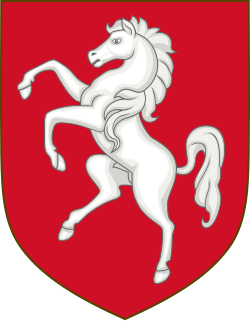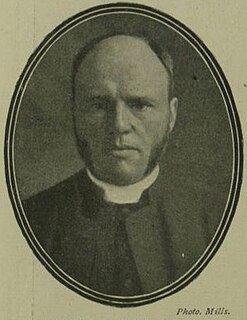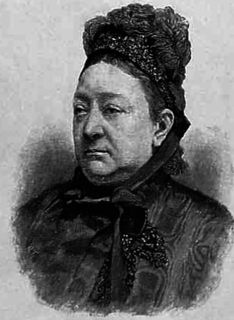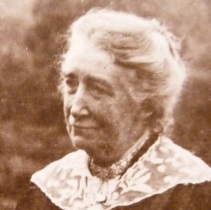Related Research Articles

Kent County Council is a county council that governs most of the county of Kent in England. It is the upper tier of elected local government, below which are 12 district councils, and around 300 town and parish councils. The county council has 84 elected councillors. The chief executive and chief officers are responsible for the day-to-day running of the council. Roger Gough is the leader of the council as of October 2019. Kent County Council is currently controlled by the Conservative Party with 61 seats. The Labour Party have 7 seats. It is one of the largest local authorities in England in terms of population served and the largest local authority of its type.

The Local Government Act 1894 was an Act of the Parliament of the United Kingdom that reformed local government in England and Wales outside the County of London. The Act followed the reforms carried out at county level under the Local Government Act 1888. The 1894 legislation introduced elected councils at district and parish level.

The London Government Act 1899 was an Act of the Parliament of the United Kingdom that reformed the administration of the capital. The Act divided the County of London into 28 metropolitan boroughs, replacing the 41 parish vestries and District Boards of Works administering the area. The legislation also transferred a few powers from the London County Council to the boroughs, and removed a number of boundary anomalies. The first elections to the new boroughs were held on 1 November 1900.

George Dixon was an English Liberal Party then Liberal Unionist politician who was active in local government in Birmingham and sat in the House of Commons in two periods between 1867 and 1898. He was a major proponent of education for all children.

John Beddoe was one of the most prominent English ethnologists in Victorian Britain.
The Qualification of Women Act 1907 was as Act of Parliament that clarified the right of certain women ratepayers to be elected to Borough and County Councils in England and Wales. It followed years of uncertainty and confusion, which included challenges in the courts when women first tried to stand for the London County Council.

John Scott Lidgett, CH was a British Wesleyan Methodist minister and educationist. He achieved prominence both as a theologian and reformer within British Methodism, stressing the importance of the church's engagement with the whole of society and human culture, and as an effective advocate for education within London. He served as the first President of the Methodist Conference in 1932–33.

Emma Jane Catherine Cobden, known as Jane Cobden, was a British Liberal politician who was active in many radical causes. A daughter of the Victorian reformer and statesman Richard Cobden, she was an early proponent of women's rights, and in 1889 was one of two women elected to the inaugural London County Council. Her election was controversial; legal challenges to her eligibility hampered and eventually prevented her from serving as a councillor.

Frances Henrietta Müller was a Chilean-British women's rights activist and theosophist.
College Hall is a fully catered hall of residence of the University of London. It is situated on Malet Street in the Bloomsbury district of London, United Kingdom. It is an intercollegiate hall, and as such provides accommodation for full-time students at constituent colleges and institutions of the University of London including King's College, University College, Queen Mary, the London School of Economics and the School of Oriental and African Studies amongst others.

Margaret Mansfield, Baroness Sandhurst was a noted suffragist who was one of the first women elected to a city council in the United Kingdom. She was also a prominent spiritualist.
Emma Knox Maitland was a United Kingdom suffragist and educationist.

Annie Leigh Browne was a United Kingdom educationist and suffragist. She co-founded College Hall, London, and funded and worked to get women elected to local government.
Mary Stewart Kilgour was a suffragist, educationalist, writer and campaigner for women's rights.
Mary Jane Bridges-Adams was a British educationalist, socialist, and activist. She campaigned for free, compulsory, secular education for all and for free school meals.
Elizabeth Sedman Lidgett was a British Poor Law guardian and suffragist.
Sarah Maclardie Amos born Sarah Maclardie Bunting (1840–1908) was a political activist. She was the superintendent of the Working Women's College in Queen Square, London.

Emma Sproson, was a suffragette, then a suffragist, socialist, politician and women's rights activist. Active in the Midlands and from a working class background, she became Wolverhampton's first female councillor, gaining the nickname "Red Emma" in the process.
Louisa Tempe Udny became Louisa Tempe Mallet was a British activist for women's education.
References
- 1 2 3 Jane Martin, ‘Browne, Annie Leigh (1851–1936)’, Oxford Dictionary of National Biography, Oxford University Press, 2004 accessed 14 Jan 2017
- ↑ Sophie Body-Gendrot; Jacques Carré (5 December 2016). A City of One's Own: Blurring the Boundaries Between Private and Public. Taylor & Francis. pp. 267–. ISBN 978-1-351-96271-1.
- 1 2 David Doughan; Professor Peter Gordon; Peter Gordon (3 June 2014). Dictionary of British Women's Organisations, 1825-1960. Taylor & Francis. pp. 223–224. ISBN 978-1-136-89777-1.
- ↑ Jane Martin (15 July 2010). Women and the Politics of Schooling in Victorian and Edwardian England. Bloomsbury Publishing. pp. 52–70. ISBN 978-0-8264-2636-9.
- 1 2 Jane Martin, ‘Maitland , Emma Knox (1844–1923)’, Oxford Dictionary of National Biography, Oxford University Press, 2004; online edn, Jan 2011 accessed 11 Jan 2017